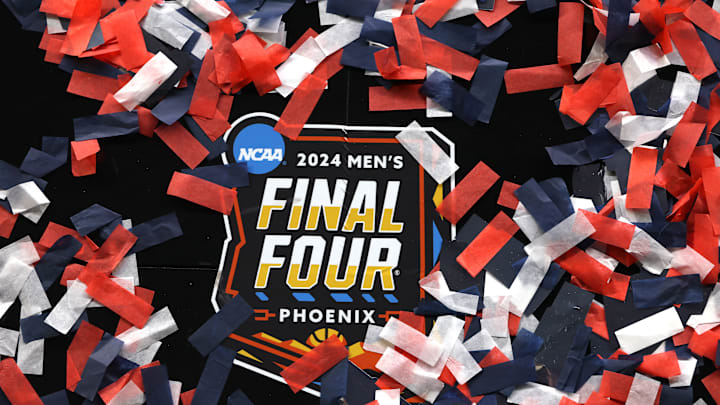In an age where it's hard to build consensus on anything, one of the few majority opinions that has near-universal approval is the format of the NCAA Tournament. The addition of the First Four back in 2011 expanded the field to 68 teams, creating a two-day teaser for the first full day of March Madness on Thursday afternoon that is a perfect appetizer for the main event.
Controversial bubble selections and recent expansion of the power conferences has led to calls from commissioners like Greg Sankey of the SEC to provide more access for their teams to the dance. Fans have been opposed to expansion since the extra slots would likely go to more mediocre power conference teams rather than exciting mid-majors who fall short in their conference tournaments, weakening the bubble even more and further diluting the value of the regular season.
NCAA President Charlie Baker provided a recent update on those expansion efforts and the news won't go over well with traditionalists.
NCAA Tournament expansion is likely coming soon
Yahoo Sports' Ross Dellenger is reporting that Baker has indicated that progress is being made towards a slight expansion of the field to either 72 or 76 teams. The NCAA's television partners are open to the move, but Baker did indicate that the expansion won't exceed more than 76 teams due to the sheer amount of games they are trying to cram into the three-week calendar for the tournament.
NCAA president Charlie Baker says progress is being made around expanding the NCAA tournament to 72 or 76 teams. He doesn’t expect it to move past 76. TV partners have expressed an openness to it.
— Ross Dellenger (@RossDellenger) December 11, 2024
Adding either four or eight more teams would likely lead to an expansion of the First Four round in Dayton, with the potential of a more traditional model of four games a day at the University of Dayton or a second First Four site being established. Selling these games makes business sense for the NCAA, which can squeeze another round of media rights for the extra inventory, while bigger leagues like the SEC, Big Ten and Big 12 can send even more of their schools to the dance.
This idea is a terrible one for the sport, especially since Sankey's argument about how NC State would've missed an opportunity to go to the Final Four if they didn't win the ACC's automatic bid in March is a mediocre point. Having more teams in the dance isn't simply about hoping the 11th-place team in the SEC can go to the Final Four, but rather about securing more NCAA Tournament units for the conference as a whole.
For those who are unfamiliar with the concept, the NCAA Tournament provides a tournament unit, or financial stake, worth millions of dollars for each game a school plays. Those units are delivered to the conferences, who then distribute the money to their members, so the more bids a league earns the more units it can earn to help finance non-revenue sports.
Tournament units can be a massive cash infusion for a smaller conference, like how the MAAC picked up almost six million dollars in extra tournament units after St. Peter's Cinderella run to the Elite Eight in 2022. Power conference teams are more likely to advance in March Madness than smaller schools, so having more of them in the field means they are more likely to snag the tournament units than teams like St. Peter's or Loyola Chicago, which made its own Final Four run in 2018.
The problem with expansion is that these extra bids are presumably going to land more often with power conference teams that rack up 13 or 14 losses thanks to their stronger metrics from a tough league schedule. High-achieving mid-majors won't get more access to the field even with expansion, further diluting the field and pushing March Madness closer to participation trophy status than rewarding the best teams in the country.
